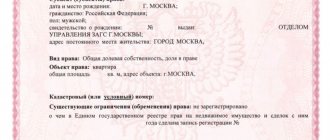Last modified: January 2021
Almost everywhere, the gratuitous transfer of ownership of real estate through a deed of gift is widespread. If all aspects of proper registration are followed, it is possible to complete the transaction in a very short time. When receiving ownership rights, the new owner is asked a number of pressing questions: “Does he have full rights to the property?”; “Is it possible to donate a donated apartment if necessary?” and “Is the ability to re-gift limited to any number, is there a numerical limit to such transactions?”
Most often, close relatives resort to this type of legal action in order to avoid paying income taxes. But it is not uncommon for there to be cases of transfer of ownership rights by deed of gift to an outsider. Of course, in this case, you will have to pay a significant tax, but this method may allow, for example, to transfer without the permission required for the sale of other home owners, in case of shared ownership of real estate.
Legal subtleties of donating a gift
There are some nuances in completing a transaction with a gift, the object of which went to the current owner of the property also under a deed of gift. You should pay attention to them if you want to donate living space again.
The main condition is that before donating an apartment, the new owner must acquire full rights to it - that is, register the property in the specialized service of Rosreestr or in the multifunctional center (MFC). Subsequently, this will give the advantage that even if the property is encumbered by the fact that the first owner lives on it, the new full owner can dispose of the property at his own discretion (Article 209 of the Civil Code of the Russian Federation)
Typically, the procedure for registering a deed of gift takes a short amount of time, especially if you contact a notary office. The exception is situations with special conditions clearly stated in the form of the gift agreement, under which the new owner can take possession only in connection with their occurrence. This category includes requirements when the new owner must enter into a legal marriage, produce an heir, receive an education, etc.
How can a transaction agent refuse a gift and in what cases?
The person who donated the apartment may change his mind and want to return it back.
The former owner of the property has the right to file a refusal to return the property in the following cases:
- his circumstances have changed (health, marital status, etc.), and the validity of the contract may lead to a worsening of the situation.
- The recipient has committed actions that threaten the life and health of the donor, as well as his relatives.
- The new owner died. In this case, the donated real estate can be returned only when such conditions are contained in the deed of gift.
- The recipient's actions caused serious damage to the donated property.
These are legal grounds that allow the former owner of the apartment to return it.
Reverse action when registering a deed of gift
There are no restrictions or prohibitions on who can act as parties to the transaction. The main thing is that the current legislation is not violated, and the transaction is not feigned and imaginary. The degree of adequacy of the parties to the gift agreement is important.
If the case so requires, it is sometimes necessary to confirm capacity. Therefore, persons who act once as a donor and a recipient can change roles when donating an object again. So in practice it happens that the property becomes the property of the donor back. There are no special restrictions in this regard.
An advantage when re-transferring property back to the donor is a transaction involving a gift to a close relative: spouse, child, parent, sister or brother, when they are exempt from paying the 13% tax (Clause 18.1, Article 217 of the Tax Code of the Russian Federation). Otherwise, you will have to pay tax twice: on the first and subsequent donations.
Ways to return residential property back
The donor has only two ways to achieve his plan. The first thing he can do is come to an agreement with the recipient.
If the new owner agrees to return the property, then the parties draw up an agreement to terminate the deed of gift. This procedure is standard and includes a visit to a notary.
If it was not possible to obtain consent from the recipient, the donor may go to court. Naturally, it must have the reasons listed above.
After all, in court you will have to prove your rights to return your home. In practice, litigation is a labor-intensive process that requires the provision of evidence, payment of state fees, etc. In addition, the consideration of the case takes a lot of time.
When filing a claim, the amount of the state fee varies. Since this is a property claim, you usually have to pay about 0.5% of the market price of the property.
After considering the case, the court makes a decision on the basis of which the ownership rights to the real estate are returned to the previous owner.
Gift deed for an apartment - features you need to know about
How to re-donate
If the party who previously received their apartment as a gift wishes to transfer its ownership to another person, then this can be done by performing the following steps:
- Check the actual ownership of the property.
- Obtain consent from the proposed donee to receive the property as a gift.
- Write out everyone registered from the donation object.
- Pay if there are debts and document their absence.
- Collect the necessary documents, draw up an agreement signed by the parties: the donor and the recipient.
- Pay the state fee.
- Submit a package of documents with an application and a donation agreement to Rosreestr or a branch of the MFC. Or simplify the procedure by contacting a notary office for help.
Download the Donation Agreement. Sample (18.5 KiB, 2,986 hits)
Donation agreement for a residential building (22.3 KiB, 341 hits)
Obstacle to the transaction
The donation procedure is quite simple; the ability to carry it out without the obligatory assistance of a notary makes it possible to save money and resolve the issue yourself. We must not forget that there is always the possibility of an artificial delay in the transaction, or even the impossibility of completing it.
The negative aspects that prevent you from donating an apartment, including the following, include:
- Poorly drawn up gift agreement. The consequence may be a refusal in future registration of property with the need to correct shortcomings.
- The need to pay state fees and expenses when applying to a notary.
- Obligation to pay 13% tax for participants not closely related.
If a beneficiary, even a close relative, decides to sell an apartment owned for less than 3 years, the value of which exceeds 1 million, then he is obligated to pay a tax of 13% on the sale.
Spouse's consent to the transaction
With an initial donation and a repeated donation, different requirements arise regarding the need for the consent of the legal spouses.
Download your spouse's consent to donate an apartment. Sample (17.1 KiB, 539 hits)
When real estate is donated for the first time and is jointly owned by both spouses, a written notarized permission for its subsequent donation is required. In addition to other specific features on the ownership of property by each of the spouses, which may be provided for in a previously drawn up marriage contract.
The fact that one of the parties is married does not in any way affect the re-donation. Even when the new owner was related by marital ties at the time of receipt of the property, if it is intended solely for one person’s possession and use. This feature is useful in that it can protect the owner of the apartment during a divorce (Clause 1 of Article 36 of the RF IC).
Multiple recipients
If the question arises: “Is it possible to issue a deed of gift for two people?” Then the answer will be positive. In addition, the number of recipients may be more. For such cases, there are multilateral agreements under which there are either several donees and more than one donor (Article 420 of the Civil Code of the Russian Federation).
Where to begin?
First of all, you need to carefully read the donation agreement to understand the time frame within which it is possible to make a transfer. In most cases, the agreement does not contain special conditions and the donee can dispose of the property immediately after registering it in his name.
But in the deed of gift it is possible to specify certain conditions, upon the occurrence of which the donee will acquire the right to the apartment. For example, a grandmother drew up a deed of gift for her grandson, but stated in it that the housing would become his property only after graduating from a higher educational institution. In fact, there is a gift agreement, but it will not be possible to register it, just as it will not be possible to transfer the property.
By court
When a peaceful resolution of the problem is not possible, the donor goes to court. Provided that the statutory limitation period has not expired. In addition to the donor himself, heirs who have learned about the fact of transfer of property to a stranger after the death of the donor can also challenge the deed of gift. Heirs who disagree with the decision of the deceased donor have the right to apply to the court for a case to annul the transaction, presenting evidence of the existence of grounds to consider the transaction invalid.
During the life of the donor, in addition to personal appeal, the following parties are allowed to file a claim:
- official representatives of government agencies;
- the person who accepted the gift;
- the donor's closest relatives representing his interests.
Depending on the circumstances, the statute of limitations for revoking a deed of gift may vary. This must be taken into account when filing an application with the court. The standard period for cases of this type is 3 years, in accordance with the general provisions of civil law. However, in some cases it is possible to cancel the gift within the next 5 years. To extend the period there must be compelling reasons, which include:
- infliction of severe injuries or injuries to the person who gave the gift;
- causing the death of the donor by the person who accepted the gift.
In the latter case, the process is initiated by the relatives of the deceased, presenting to the court compelling reasons for determining criminal actions on the part of the person who accepted the gift.
In order to achieve satisfaction of the claim, it is necessary to prepare in advance evidence that the transaction was executed in the circumstances mentioned in Chapter. 32 of the Civil Code of the Russian Federation.
If the claim is considered after the death of the donor, in addition to the evidence base, a medical certificate establishing the cause of death of the person, as well as a certificate of death, is attached to the case materials. A more powerful argument will be the fact that a criminal case has been opened, accusing the recipient of causing death.
There is practically no chance of achieving a verdict with the annulment of the gift transaction if the presence of circumstances allowing for annulment is unclear. However, if the transaction was actually executed with violations, with careful preparation for the trial, the likelihood of satisfying the plaintiff’s demands is high, regardless of who filed the application.
The procedure for declaring a deed of gift invalid
The process of canceling a deed of gift involves going through several mandatory stages. You need to start by notifying the other party to the transaction about your intention to terminate the contract, and also that in the absence of a mutual solution to the issue, the initiator of the dispute will resort to the help of the court.
If the counterparty is ready to make concessions and accept or return the gift, a written agreement is drawn up that cancels the contract. If the transaction was certified by a notary, the terminating document should be certified in the same way. It is recommended to contact the same notary office.
The finished package of documents should be submitted to Rosreestr, if the gift agreement has already been registered, it includes:
- statement;
- original contract;
- passports of the parties to the transaction;
- extract from the Unified State Register of Real Estate;
- certificate on the number of persons registered in the apartment;
- consent of the owner’s family members to cancel a previously concluded contract;
- receipt of payment of state duty;
- documents for the apartment (cadastral passport and certificate of appraised value);
- power of attorney, if a representative acts in the interests of one of the parties.
Papers are sent directly to the Rosreestr branch or through the MFC: in person, by post or electronically (if the signatories have an electronic signature). If the situation leads to the need to go to court, it is recommended to approach this procedure competently.
You should start by drawing up a statement of claim. It is better to entrust this to a lawyer with experience, but you can write it yourself using the law and publicly available templates. However, an illiterately drafted claim significantly reduces the chances of winning the case.
USEFUL INFORMATION: Types of apartment ownership
In addition to the already mentioned legitimate reasons for canceling a donation, these may include:
- lack of free will when signing a document;
- threat of violence from the recipient;
- mental disorder of the owner;
- incapacity of the donor;
- violation of the terms or subject of the transaction (for example, the contract specifies a clause on the transfer of the object only after the death of the donor);
- failure to comply with the form and procedure for concluding an agreement;
- the donor does not have the right to transfer the apartment or, conversely, the receiving party has the right to receive it;
- the concluded transaction is feigned or imaginary;
- misleading the donor about the substance of the transaction, etc.
One or more circumstances must be present at the time the transaction is concluded and confirmed in court by relevant evidence (documents, witness statements, etc.).
The plaintiff must also remember that on the side of the recipient of the apartment there are several articles of the Civil Code of the Russian Federation: Part 1 of Art. 573, paragraph 3 of Art. 574, art. 578, art. 450.
The text of the statement of claim must indicate:
- information about the parties to the dispute, their addresses, contacts;
- subject and essence of the dispute;
- grounds (according to law) and evidence;
- annex – a list of documents confirming the plaintiff’s position;
- date and signature of the applicant (or his representative).
The statement of claim is filed with the district court at the defendant’s place of residence in a number of copies equal to the number of parties to the dispute. In this case, two packages of documents should be sent. The court employee marks the acceptance of the application on one copy and gives it to the plaintiff.
After the claim is accepted, the compliance of the documentation with civil procedural legislation is checked. If there are no errors, the package is submitted to the judge, who sets a date for the preliminary hearing.
To protect interests during the hearing, you should not only present the judge with significant evidence, but also be able to explain it, show the cause-and-effect relationship between it and the plaintiff’s violated right.
The possibility of invalidating a gift agreement is exercised within the limitation period of three years.
To increase the chances of successfully resolving a case regarding invalidation of a gift agreement, it is recommended to appoint an experienced lawyer as the plaintiff’s representative. He will prepare all the necessary documents and appear in court. Both the donor and the recipient of the apartment can return it to each other.
The law does not prohibit this, but it is necessary to follow the return procedure by drawing up a written voluntary agreement or applying to court to cancel the contract.
Unfortunately, it is impossible to refuse a gift if the transferred living space was in poor condition and caused harm to the life, health or belongings of the recipient. In this case, he can only demand compensation for the damage caused from the second party.
Features of refusing a gift
Both procedures (donation and refusal) must be carried out by legally capable and adult citizens. During notarization, the specialist has the right to request a medical certificate of the donor’s sanity and legal capacity. Since the recipient acts as a donor when returning, all procedural provisions apply to him in the same way. The subtleties of reverse legal actions are most often unknown to citizens, which is why they make mistakes and can significantly harm their interests.
The deed of gift is beneficial for relatives and members of the same family, since it is not necessary to pay 13% of the value of the property. For the rest, you will need to pay income tax; for foreigners, the tax will be 30% of the value of the gift. It is these different costs that sometimes push citizens to falsify and provide false information about the degree of relationship. The tax inspectorate checks submitted reporting documents and identifies unscrupulous taxpayers.
The deed of gift has always been a legal option for resolving family issues of ownership. A gratuitous contract allows you to transfer expensive property to a selected relative during your lifetime. This prevents disputes that often arise in inheritance matters. But sometimes the consequences of this step require a reverse re-registration, sometimes a life situation requires refusal of the gift. If the opposite action occurs by agreement of the parties, then the clause of the agreement includes the terms of payment of expenses and the procedure for the actual transfer of the apartment, the issue of registration of residents.
USEFUL INFORMATION: Alimony after 18 years of age: how to draw up a statement of claim for its collection
To the question: is it possible to return a donated apartment back, there is a legislative answer. The recipient has the right to do this without providing compelling reasons. It is advisable to conclude such important agreements with a notary, who can subsequently act as a witness and confirm the adequacy of the donor. Often, after the donation is formalized and registered, third interested parties begin legal proceedings in order to prove the illegitimateness of the agreement.
If the situation has changed dramatically, it is recommended to first find out whether it is possible to return the donated apartment back without trial. If it is possible to reach an agreement, then the problem will be solved peacefully faster and without significant financial costs.
Pros and cons of a gift agreement
The deed of gift appears as an official document that requires mandatory registration in the state Rosreestr and has official force even without notarization.
The advantages of such a document:
- Simplicity of design. There is no need to register with a notary. But you need to submit a package of documentation to Rosreestr.
- You can bypass some legislative acts - you can transfer ownership of not only the entire apartment, but also some part or share, if other property owners do not allow the sale and purchase transaction to be completed.
- The deed of gift is valid from the moment the recipient takes possession. An act of transfer of property must be included with the deed of gift.
Disadvantages of deed of gift:
- A gift agreement for real estate is subject to tax if it is drawn up between strangers, that is, non-relatives. The tax rate is 13% of the total amount of the object. This is a considerable amount, so in a situation where an apartment or house is donated to an outsider, it is better to consider the option of sale or purchase or will.
- It is very difficult to invalidate a gift agreement, but it is possible. For example, when the donor is a mentally ill person, or at the time of signing the deed of gift the citizen does not control his mental state. Another option is when the donor was blackmailed. But all this must be confirmed in court.
- The donor does not have the right to indicate in the document his wishes that relate to the property being donated.
When real estate is owned by several citizens on the condition of joint rights, a deed of gift can only be written with the consent of the remaining owners. If a document is drawn up without their consent, it can be easily challenged in court.
Deadlines
Most often, registration of ownership under a gift agreement does not take a huge amount of time. If you contact a notary and have all the necessary documents on hand, the transaction will be completed within a day.
It is a little more difficult to prepare a deed of gift on your own. It all depends on where you decide to register the gift deed. There may be a shorter queue at the MFC (it all depends on the subject of the Russian Federation), but you will have to wait about a week for documents. At Rosreestr you will be able to receive ready-made documents in your hands in three to four days.
Is it possible to transfer the apartment back to the donor?
It is not prohibited by law to return a gift back to the donor. The recipient, having become the owner, has the right to independently choose a candidate to receive such a gift.
Thus, the owner can transfer the property by deed of gift to anyone. However, the law provides for several categories of persons who are prohibited from donating real estate from clients (or persons related to them). Such persons include:
- civil servants;
- employees of municipal institutions;
- employees of medical, educational or educational institutions.
Despite the direct legislative prohibition, in fact, the status of a citizen who receives real estate as a gift is not checked by employees of the MFC or Rosreestr.
However, the right to transfer the apartment back follows from Art. 578 of the Civil Code of the Russian Federation, which states that a gift can be returned to the donor in the following situations:
- If this is a voluntary expression of the donee’s will.
- If the donor demands the return of the gift (return is possible only by court decision).
- When a deed of gift is declared invalid in court.
To return property at the request of the current owner, it is enough to go through standard legal procedures that are implied by the registration of a donation.
Regulatory justification for the transfer of an apartment
Transfer of a real estate property free of charge by concluding a gift agreement. After signing it, the former owner loses ownership of the apartment, while the current owner gains it.
From the moment the agreement comes into force, the donee receives the right to fully use and dispose of the property. One of the powers in a gift relationship is the possibility of transferring an apartment both during the life of the donor and after his death.
To launch the mechanism for re-registration of an apartment, you need to know how long it will take to complete the procedure for concluding a new contract and what conditions it should contain.
As a general rule, the owner of property can perform any actions with the property, including repeatedly donating his things by concluding deeds of gift.
Reasons for return
In order for the donor to return the donated housing or its share, there must be compelling reasons and circumstances.
Regarding the recipient, the law does not presuppose the existence of reasons or conditions. Article 573 of the Civil Code of the Russian Federation states that the recipient may not explain the reasons why he refuses the gift.
Note: If the agreement has not been registered, the recipient can easily refuse the proposed gift. And if the gift has already been accepted, the contract is considered fulfilled.
According to the Civil Code of the Russian Federation, the donee may refuse the gift until it has been transferred to him, in which case the contract will be terminated. When concluding a written contract, the refusal will have to be formalized in writing.
If the recipient refuses the gift, the donor may demand compensation from him for damage incurred due to the refusal.
Registration of transfer
The donation procedure has its own characteristics and legal subtleties. Let us consider in detail the process of registering a deed of gift in general terms.
Transfer procedure
The first step will be drawing up a deed of gift. This agreement must indicate the personal data of the parties and a description of the object to be transferred.
The deed of gift must be notarized. In addition, for the transaction to be legal, you will need to go through the procedure of state registration of rights.
To do this, you need to contact the territorial department of Rosreestr or the MFC at the location of the object. You can also submit documents by registered mail with notification or via the Internet on the official website of the department or on the State Services portal.
The following documents will be required for registration:
- registration statement from the parties to the transaction;
- general civil passports of the Russian Federation of the parties;
- receipt for payment of state duty in the amount of 2000 rubles;
- documents of title for the subject of donation (deed of gift);
- legal document (extract from the Unified State Register or certificate);
- a certificate of the composition of persons registered in the donated apartment (issued at the housing department, passport office or other authorized institution).
A receipt for payment of the state fee is not required, since the data on receipt of payment falls into the general database. However, to avoid misunderstandings, it is better to save it until the end of the registration procedure.
Legal nuances
As with any transaction, the transfer process has certain features. It is important to consider the following aspects:
- Cancellation of a deed of gift is possible only within three years from the date of its registration. To do this, you will need to prove that the transaction was made under pressure or as a result of fraudulent actions by one of the parties.
- If the donee cannot be personally present at the execution of the contract, a representative can act instead on the basis of a notarized power of attorney.
- After the transaction is concluded, each party retains a written original deed of gift. It is also necessary to prepare a third copy for Rosreestr.
- If the gift is given to a minor or incapacitated person, the guardian or legal representative must consent to the transaction.
If part of a house or apartment that is in shared ownership is transferred, the consent of the co-owners, executed in writing, will be required.
Transaction cost
Despite the fact that you can re-donate property endlessly, it should be borne in mind that this procedure is not entirely free. Upon registration you will need to pay:
- state fee for registration of property rights (2000 rubles);
- payment for notary services (depending on the value of the property);
- income tax of 13% (not in all cases).
Donations that are not between close relatives and family members will be taxed. The obligation to pay the tax payment arises from the donee.
The tax amount is calculated based on the cadastral value of the property and, as a rule, amounts to a very significant amount. To avoid paying taxes, some citizens do not draw up a deed of gift, but a fictitious purchase and sale agreement. However, this option is not always suitable.
For example, a serious advantage of donation is the fact that the donated real estate is not the joint property of the spouses. In the event of a divorce, it will be transferred in full to the spouse to whom it was gifted.
All expenses for completing the transaction are borne by the donee, since he is the beneficiary.
Other subtleties
In general, donation is a simple procedure. Difficulties can arise only at the stage of drawing up a new deed of gift.
Can Rosreestr or MFC refuse to register a transfer of rights? They can. There may be two reasons: incorrect drafting of the gift agreement or the absence of any documents.
To avoid refusal, seek legal advice from a specialist. A professional lawyer will help you draw up a competent gift agreement and help provide for all the nuances of the transaction. You can get a consultation for free on our website.
Important point. When transferring, remember that the first donor can challenge the transaction in court if he considers that your actions are not legal.






